Christians flock to churches in the Arab world

Two million Roman Catholics live in the Arabian peninsula, and at Christmas the churches are full to bursting.
Swiss bishop Paul Hinder, who has pastoral responsibility for the area of three million square kilometres, tells swissinfo.ch that although freedom of religion varies from country to country, Christians are managing to practise their faith.
He says that while Switzerland’s image in the Arab world has been tarnished by the vote to ban minarets, the country’s reputation will recover.
While he condemns the ban, he also expresses some sympathy with those who voted for it.
This Christmas around 15,000 faithful will take part in different masses in St Joseph’s cathedral in Abu Dhabi, the bishop’s seat. The Catholics, mainly from Asia, make up only 2.7 per cent of the population of the region, but they fill the churches.
swissinfo.ch: You are from a religious order and yet have become a bishop with a diplomatic role. That’s quite unusual, isn’t it?
Paul Hinder: I never set out to become a bishop, rather to avoid becoming one! But it would have been difficult to refuse the nomination.
At the outset I had some idea of what was in store for me, as I knew the region. But the challenge has been far greater than I anticipated: I am up to my eyes in work and constantly on the move around this vast territory with its many Catholics, mostly Asian but also from many other places.
The most difficult thing for me has been the language. Unfortunately I don’t have the time to learn Arabic. English is what I use with the authorities and with almost all the faithful, who are foreigners.
swissinfo.ch: These full churches are a far cry from what is happening in Europe and in Switzerland…
P.H.: … It is true that, unlike in Europe, the church here is really flourishing. I have been impressed by the devotion of the faithful, and that also helps me personally.
This diverse church contains a richness of nations, races, traditions – there are many oriental Catholics, even some groups I had never heard of.
But this diversity also implies a certain complexity. And the shortage of places of worship, a challenge in itself, can be a source of tension among communities. But I rejoice that so many people can live with serenity in countries where freedom is limited.
swissinfo.ch: Are the Christians persecuted?
P.H.: In the ordinary sense of the word, no, not all. At least, not in the region I cover. But there is a more subtle form of persecution, which means that certain people in some regions have to keep their heads down and cannot openly declare themselves Christian.
But that does not mean that their existence is threatened. They can live their lives, with some difficulty, and they can practise their faith. They simply do so in a more private way. It is not ideal but it impresses me every time I (re) discover this very precarious state of religious freedom in which some people live.
I myself can move around all the countries, but I need a visa everywhere, which I can sometimes get at the airport when I arrive. I generally wear a clerical collar when I travel, but sometimes I am in ordinary clothes, depending on where I am going.
swissinfo.ch: What are the greatest constraints on Christian believers?
P.H.: There are limitations in terms of building regulations, and church bells are obviously not permitted. But for me that is not the most important thing. What I need most is houses of worship and places to teach children and train adults for work in the parishes. Because we are obliged to conduct our “public” activities on the sites we have been allocated.
The diocese comprises 18 parishes in five of the six countries of the Arabian peninsula [there are no churches in Saudi Arabia]. Since my arrival I have had the pleasure of inaugurating two new churches: a large church in Doha – the first in Qatar, and another in early December in Al-Aïn, an oasis town and the second city of the emirate of Abu Dhabi.
swissinfo.ch: You must certainly have followed the vote on November 29 to ban minarets. What is your reaction to the fact that many Christians voted for the ban?
P.H.: In line with the Catholic hierarchy, I am convinced that this runs counter to democratic principles. But I must confess I do have some understanding for the fears of many people.
I do not believe that they simply voted against Islam as such, or against Muslims. But it is a fact that 23 per cent of the population in Switzerland are foreigners, and some people have problems accepting all these religions and cultures because they have a deep fear of losing their own identity. Even though, paradoxically, you could question whether they still have a Christian identity.
We all misjudged the strength of these feelings, and I believe this should not have happened. But now we have to live with this reality, while hoping that the Christians of the East will not suffer as a result.
swissinfo.ch.: Do you think the image of Switzerland has been harmed?
P.H.: There have of course been strong reactions here in the Arab world, and there has even been some disinformation in the media. (Local media have not contacted me, so far.) But I don’t think we can judge that yet, we need to wait and see.
For now, Switzerland’s image has certainly been tarnished in some countries – and not just Muslim ones – where people see that it is not as unblemished as they thought. But I do not think that will last, because Switzerland has other qualities which are recognised.
As for the rest of Europe, I believe that voters would have given the same if not a worse response in most countries, had they had the chance to vote on the issue. But that’s another question.
Isabelle Eichenberger, swissinfo.ch (Adapted from French by Morven McLean)
The Vicariate Apostolic of Arabia covers six countries in the Arabian peninsula, with a total area of 3,000,000 km2.
It is the largest bishopric in the world.
It was established in Aden (now Yemen) in 1888
Since 1916, it has been in the care of the religious order, the Capuchins of Florence
In 2009 there were about two million Catholics (4% of the total population), most of whom are foreigners.
The bishopric has 18 parishes in five of the six countries of the peninsula (Bahrain,
Oman, Qatar, United Arab Emirates, Yemen.)
There are no churches in Saudi Arabia.
The bishop’s seat is in Abu Dhabi, in the UAE.
Born 1942 in Stehrenberg, in canton Thurgau
He entered the Capuchin order in 1962, and was ordained a priest in 1967.
He has worked in several countries, mainly Switzerland and Italy, but with regular stays in other European countries, Canada and the Middle East.
Pope John-Paul II appointed him auxiliary bishop of the Vicariate Apostolic of Arabia in 2003, and Vicar Apostolic in 2005.

In compliance with the JTI standards
More: SWI swissinfo.ch certified by the Journalism Trust Initiative
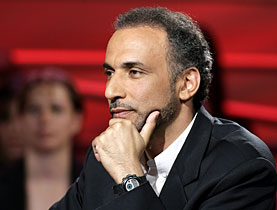
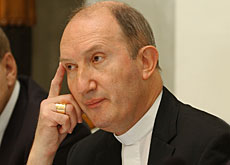
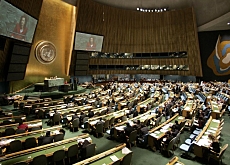
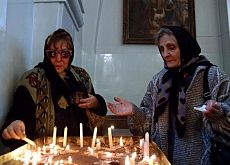
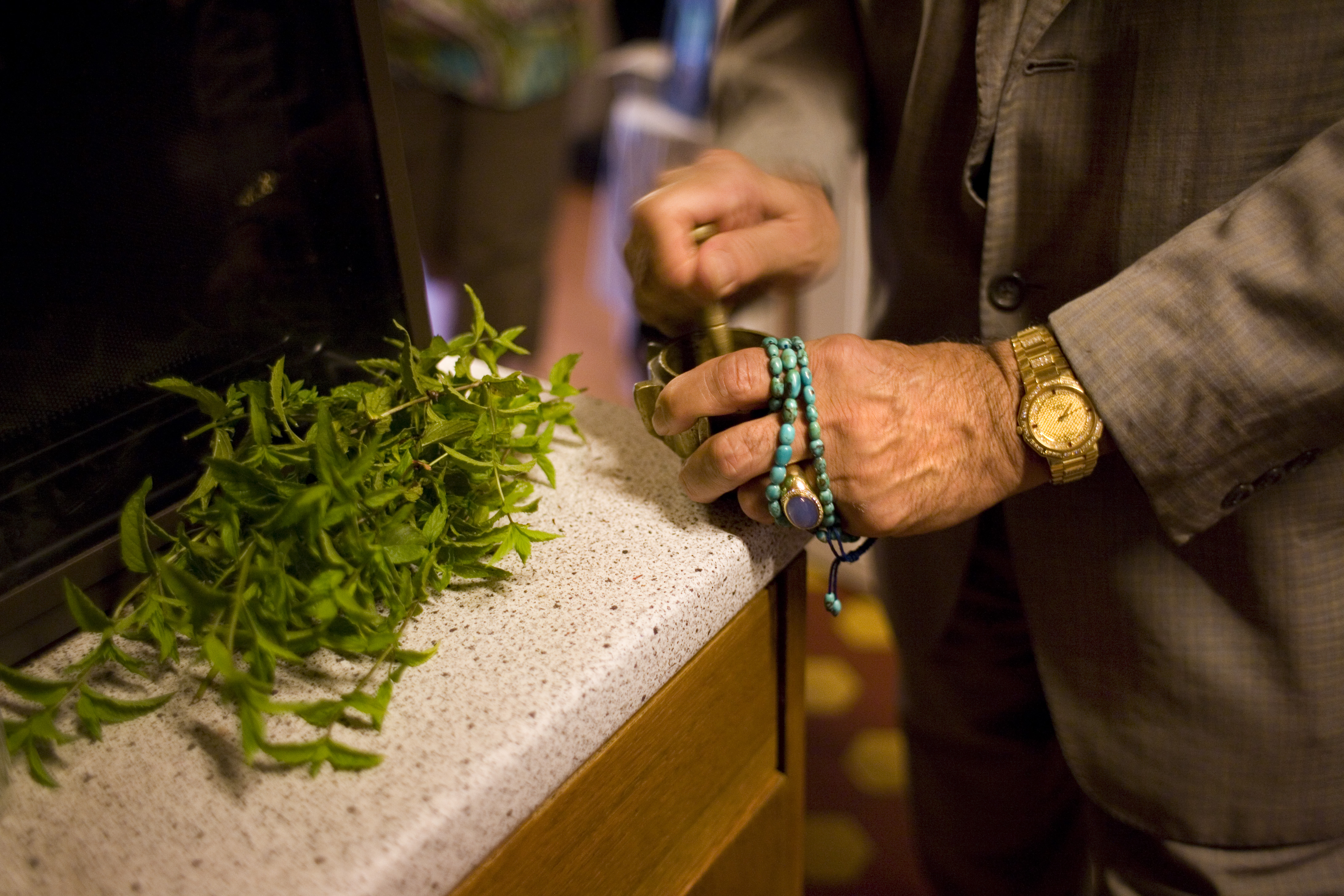
You can find an overview of ongoing debates with our journalists here. Please join us!
If you want to start a conversation about a topic raised in this article or want to report factual errors, email us at english@swissinfo.ch.